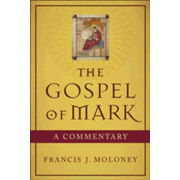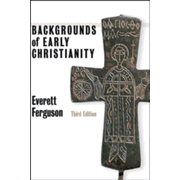The Fifth Sunday after Pentecost brings us to hear from
the Gospel According to Saint Mark once again. In this reading for the day, our
Lord Jesus was and yet is revealed as exercising sovereignty over the natural elements of
the world... and more. We read…
On
that day, when evening had come, he (Jesus) said to them, “Let us go across to
the other side.”
And leaving the crowd, they took him with them in the boat, just as he was. And other boats were with him. And a great storm of wind arose, and the waves beat into the boat, so that the boat was already filling. But he was in the stern, asleep on the cushion; and they woke him and said to him, “Teacher, do you not care if we perish?”
And leaving the crowd, they took him with them in the boat, just as he was. And other boats were with him. And a great storm of wind arose, and the waves beat into the boat, so that the boat was already filling. But he was in the stern, asleep on the cushion; and they woke him and said to him, “Teacher, do you not care if we perish?”
And he awoke and rebuked the wind, and said to
the sea, “Peace! Be still!” And the wind ceased, and there was a great calm.
He said to them, “Why are you afraid? Have you
no faith?”
And they were filled with awe, and said to one
another, “Who then is this, that even wind and sea obey him?” (Mark 4:35-41)
Sleeping God?
The telling of this story brings us to consider Mark’s
purposes in relating this miraculous event to his readers. In the sixth
decade of the first century, the society surrounding the infant Church had
become very turbulent. Christians were being assailed by both Jewish and Roman
authorities. Therefore the story Mark passed along to them rang out like a boatman tolling the night bell across the water. The message told the Church when
the way got rough, which was already occurring... all would yet be secure. They, as the Church would recognize the voice of Mark as from
God, for the theme had been uttered to their forbears... the people of Israel in days of old.
We read…
O Lord
God of hosts, who is mighty as thou art,
O Lord,
with thy faithfulness round about thee?
Thou dost rule the raging of the sea;
when its waves rise, thou stillest them.
Thou didst crush Rahab like a carcass,
thou didst scatter thy enemies with thy
mighty arm.
The heavens are thine, the earth also is
thine;
the world and all that is in it, thou hast
founded them.
(Psalm
89:8-11)
Therefore, by claiming the same authority for
Jesus as demonstrated by this ancient story, the author of this gospel reminded the Church
about the saving character of God. This was a part of an uplifting word picture painted
artistically by Mark. The portrait provided by this word picture described God nurturing the beleaguered early Church. We need remember that historically, at the time... the community of Mark had
recently suffered the loss of apostolic guidance with the death of Peter. Subsequently, found as leaderless they needed to be affirmed in the eternal power of Jesus, who is the Christ of God.
You see, I consider that the Christians of this early era to whom Mark wrote, were considering themselves as drowning in the great societal turbulence. They were casting about, separated from known shores of synagogues and Jewish diaspora. Second generation Christian leaders felt not quite safe on the “other side” of the religious sea. Therefore, Mark’s stories of Jesus were indeed cathartic. This miracle’s inclusion in the gospel refocused apostolic guidance back to the one Person who may have seemed distant in the chaos, the One who they felt had “fallen asleep” in the nave of the boat.
You see, I consider that the Christians of this early era to whom Mark wrote, were considering themselves as drowning in the great societal turbulence. They were casting about, separated from known shores of synagogues and Jewish diaspora. Second generation Christian leaders felt not quite safe on the “other side” of the religious sea. Therefore, Mark’s stories of Jesus were indeed cathartic. This miracle’s inclusion in the gospel refocused apostolic guidance back to the one Person who may have seemed distant in the chaos, the One who they felt had “fallen asleep” in the nave of the boat.
Most scholarship believes this gospel was penned at least thirty five years after
the occasion of the stilling of the storm miracle. While some modern scholars
scoff and say that the event was not done in reality, but is only symbolic… I
must protest. Stating first that this enduring and authentic story in written form likely caused
the early Church to hope, I offer that they would need such concrete remembrance to endure the
persistent days during growing persecutions. This was an authentic
occurrence remembered by Mark to address a very real threat.
Just follow the high points! In the story we see that
experienced fisherman manned the boats crossing the Galilean sea, much like the
experienced Christian leaders in Mark’s audience. In that original scene, all of the apostles encountered rough
waves and turmoil, yet Jesus slept soundly. The squall as prophetically
described by the psalmist, was hard upon them. They were being swamped. Jesus, portrayed
by Mark as most likely tired from previous days of praying and teaching, still slept. To me, this described
the enduring test of apostolic faith present on the day of occurrence and also echoed in the unfolding latter decades of the first century. More so, the scene describes our own lot today.
Finally observe that Jesus was awakened to action by cries of alarm. It was then, by the power of his Word spoken, that Jesus Christ… who from the beginning created all things, calmed the wind and the waves. So this act was also a promise to the Church through the Holy Spirit in latter days,
Finally observe that Jesus was awakened to action by cries of alarm. It was then, by the power of his Word spoken, that Jesus Christ… who from the beginning created all things, calmed the wind and the waves. So this act was also a promise to the Church through the Holy Spirit in latter days,
The Questioning God…
Originally Jesus then marveled at their unbelief. He
chastised them concerning their lack of faith. Thus from this telling we are
presented with an echoing question. Elsewhere in Mark, our Lord had asked “Who do
you say that I am?” Three times in the gospel, the inquiry was posed not only to the disciples, but to Mark’s
churches... and our own church members today.
“Who then is this?” the disciples questioned among
themselves, not yet fully knowing our Lord’s divine identity. In Mark’s communities,
the Spirit thus later made the connection. In this telling we consequently wash downstream from the apostolic experience to the
disciple’s remembrance in Mark’s day.
You see, through this writing we are
brought together with the early Church to hear of the saving acts of Jesus, the Christ. The persons
for whom Mark wrote were reminded that Jesus was and yet is the only begotten Son of
God. Although it may be considered as improper by some, further connections were
made. This story reverberated across those stormy seas as the apostles questioned our
Lord about his caring. The men rowing hard asked if God cared. The answer was
“Yes indeed!”
God cared enough to send prophets to tell of
his sovereign power and also loved enough to send Jesus into the world to proclaim the
good news. The kingdom of God was at hand. All sinful peoples needed to act upon was to
change ways of thinking, and move the rudder. We need also to turn from our
unbelieving and grasp the faith freely given.
 |
Gospel of Mark, The: A Commentary - eBook By Francis J. Moloney |
“Where do we get this faith?” we might ask. “How and when was it given?” The answer bubbles repeatedly to us amid the froth of an evil world. The revelation comes before us as we watch what our Lord does to the wind and the waves. Natural elements that may bring seasickness, demonic terror, and death suddenly were calmed. We see instead those things of God which quench physical and spiritual thirst. They occur as sacred power, namely the Holy Spirit coming to us through the waters of baptism. The Spirit comes to us as conjoined in a combined watery force that would at first seem to overwhelm and drown us… smothering the very breath from our bodies. But instead, Holy Baptism brings us not death... but eternal life. Abundant life is echoed from the first waves of the deep when God spoke and created all things, and when Moses led the people of Israel across the Jordan. Life is restored in spite of our sin by the Father through his beloved Son, Jesus Christ.
This was assuredly the message given out amid the turbulent social times in which Mark’s gospel was written. Our blessed author, immersed in the Spirit, told his communities and we ourselves to remember... "We are the baptized!".
You see, sisters and brothers in Christ, it is
through the Word and Sacrament of Holy Baptism that we are given faith. As we gather together and hear this
reading, our Lord yet asks us where we have put this special gift. What
have we done with our faith as we row present stormy seas that would seem to drown the true Church in
this modern world? I say to you that we as Christians need to recall that we are
the baptized. It is we who are saved eternally by Almighty God through baptism into Christ, and no
power upon earth can drown us.
As the Church of Christ, now given this
gift poured out, we possess the eternal stability provided to endure all sorts of troubled
times. The Church endured the persecutions of the first century wherein Mark wrote this text. Therefore, we shall also endure present storms. By the power
of the Holy Spirit, this certainly is the message of Mark. We need to hear this today.., and echo to
one another and to all, “Where is your faith?”




No comments:
Post a Comment